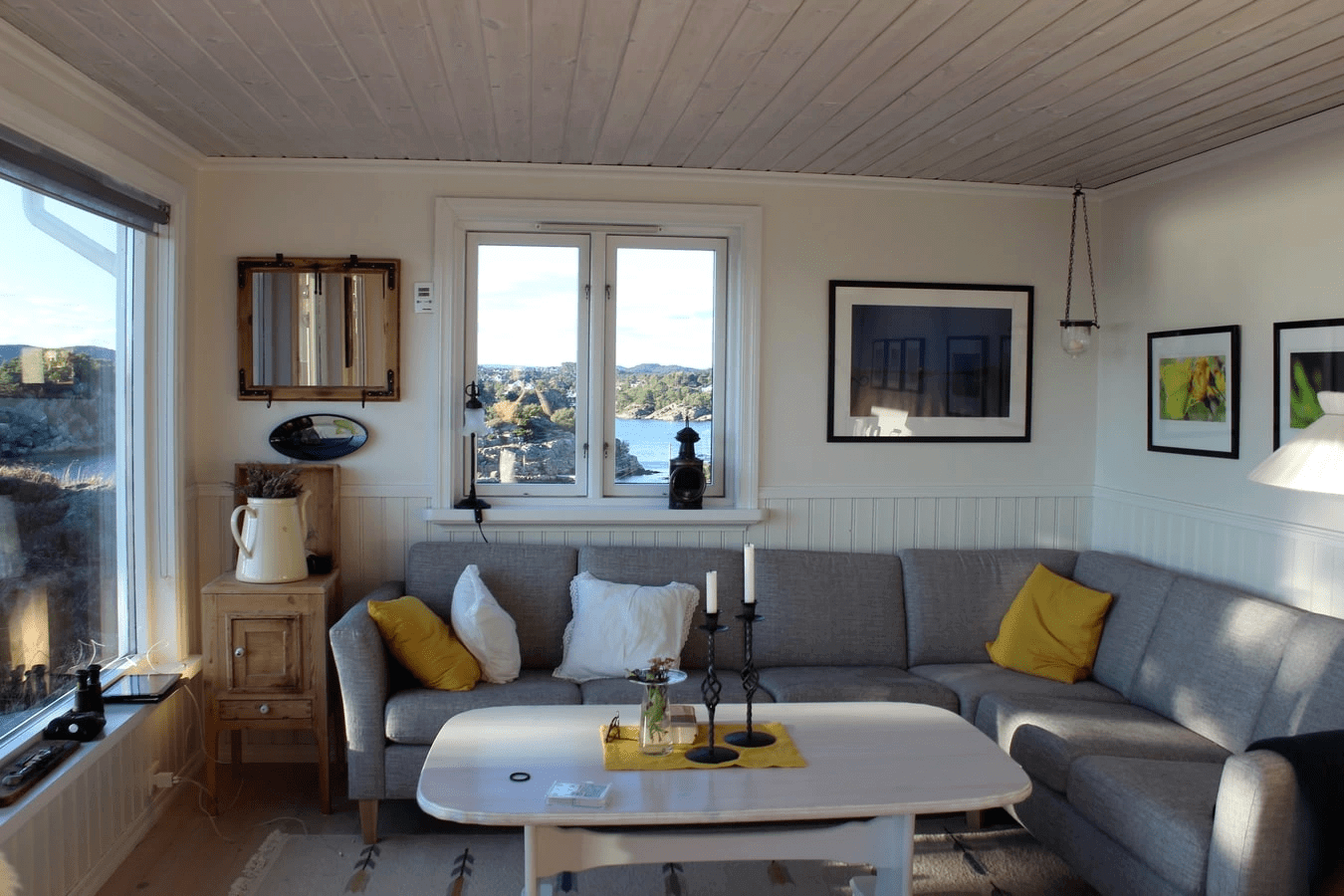How to Reduce Home Noise
Loud neighbours, lumbering trucks, barking dogs, construction crews—the world’s a noisy place. But with a few simple fixes, you can turn your loud home into a quiet, serene haven.
We live fast, noisy lives facilitated by loud machines. High-speed expressways roar through towns. Cell phone conversations are everywhere. Our homes are a symphony of digital beeps, from the computer to the dishwasher. We barely notice lawn mowers and chain saws—noises that would have made our ancestors jump and run.

Thunder was the loudest noise that rocked pre-industrial humans. Before internal combustion, roars and booms signalled danger, and our bodies still react to loud noises with a prehistoric adrenaline surge: Our hearts pump harder, our blood pressure rises, our blood vessels constrict. Living in a din of ringtones, mechanical humming, and loud and unrelenting advertising, it’s no wonder we get a little stressed. Chronic noise can stress the endocrine, cardiovascular and immune systems, and children from highly noisy households have been found to experience delayed language skills and increased anxiety. Noise disturbs sleep, affects emotional well-being and may contribute to heart disease and mental illness. Fortunately, there are ways to deal with home noise and keep it at bay.
Disturbing the Peace

Civilizations have been trying to control urban noise since cities began. In 6000 B.C., the Sybarites banned blacksmiths and cabinetmakers from working in residential areas (the first zoning). Julius Caesar reportedly tried to outlaw chariots speeding over cobblestones because of the clamour they created. In medieval Europe, horse carriages and horseback riding were not allowed at night in some cities; straw was strewn on the streets to muffle the sound of hooves and wheels by day. Inside well-to-do homes, thick tapestries and straw on the floors protected bluebloods from hawkers’ and street musicians’ perpetual noise.
Modern living has made urban noise a bigger problem than the Romans could have imagined. Over the past 15 years, the noise level in major metropolitan areas has increased sixfold; urban noise doubles every eight to 10 years. Noise complaints are the most prevalent to the New York Police Department’s Quality of Life hotline.
Our homes should be a refuge from all that, but too often they’re filled with constant bumps and grinds: refrigerators’ and air conditioners’ incessant humming, the heater’s low roar, the startling thunk of the washing machine’s automatic water shutoff, the coffee grinder’s high-pitched whirr, the neighbour kid practising his bass guitar or violin.
Subdivisions full of large homes on small lots mean our neighbours’ noise is our noise. Open floor plans with rooms merging into one another through doorless passageways let sound bounce freely around our houses. Great rooms connect everything to the kitchen—the loudest room in the house—making for an afternoon cacophony when the kids are watching SpongeBob and Mom’s running the food processor and the dishwasher.
Soften the Blow of Home Noise
The décor and interior finishes you choose can have a big impact on your home’s noise levels. Carpet, for its many flaws, does a lot to muffle our homes’ noise. Hardwood floors, for their many virtues, are big drum heads that send sound reverberating through a house. Bare walls (especially if they’re plaster) and plain wood furniture do the same. You can minimize this by making sure that at least 25 per cent of every room contains absorbent material such as drapes, Venetian blinds, fabric wall hangings or canvas paintings, and rugs or carpet. Book-filled bookcases and deep, squishy upholstered furniture—the softer and larger, the better—also help stop sound from bouncing. Consider nubby hemp, rustic burlap or raw silk for draperies. Sisal, seagrass and cork can absorb sound underfoot.
You can also help quiet your home’s interior by altering your habits. Consider designating one night a week “no-TV night.” Try turning off the radio during your morning commute, taking time to quietly prepare for the day ahead. You can actively engage silence by practising a few moments of silence before eating a meal or making time in the afternoon for a quiet cup of tea.
Muffled Machines
Our appliances are often responsible for many of the thunks and dings we hear in our houses, but many manufacturers are working to make products that run efficiently and quietly. Energy-efficiency standards implemented in 2001 mandated that all refrigerators use smaller compressors and inject foam into the door and side panels to increase insulation, which also muffles sound.
Newer dishwashers are much quieter than the machines of old, although the pumping and swishing that cleans the dishes can’t be entirely silenced.
Now that laundry rooms have been elevated out of the basement (where it didn’t matter if washers and dryers knocked around and gurgled loudly as they drained), quieter operation is a bigger priority. If your laundry room is upstairs next to the master bedroom or adjacent to your living space, pay especially close attention to noise abatement. Front-loading, high-efficiency washers use less water and detergent—and therefore make less home noise. Insulate the room’s walls and make sure the washer and dryer are mounted on a strong, level surface so that their spinning vibrations don’t cause them to shake and spin off-kilter.
Solutions to Home Noise

Use any of these recommendations to help quell home noise in your home, sweet home.
Quick Fixes
- Place ½-inch-thick rubber or cork pads under the legs or corners of large, heavy appliances to stop vibrations from transferring to the floor.
- Move appliances at least 2 inches away from walls.
- Place rubber pads under small appliances and dish racks, on countertops near the stove, and in sink basins to reduce the clanking of dishes and utensils on hard surfaces.
- Install rubber or cork tile on the backs and shelves of cabinets.
- Put stereo speakers on stands or place rubber vibration isolator mats (available from office supply, computer or audio equipment stores) beneath speakers and computer printers.
Doors
- Install storm doors.
- Replace hollow-core doors with solid doors (check for high-quality antique or salvaged ones at secondhand and architectural salvage stores). If that’s not possible, add an extra layer of plywood to both sides of the door to help absorb more sound.
- Place weather stripping around all doors, even interior ones. Replace any weather stripping that’s loose or admits light or air.
- Use flexible rubber threshold seals to close off the space below doors.
- Cover up the mail slot.
Windows
- Invest in double-paned windows. They provide noticeably improved soundproofing thanks to the air cavity between the two panes.
- Caulk existing windows and equip them with gaskets to provide an airtight seal.
- Install storm windows with heavy glass and good weatherstripping.
- Place shutters inside the window.
Plumbing and Mechanical Systems
- Heavily insulate plastic pipes to minimize the noise of gurgling and sloshing.
- Install water hammer arresters (available at hardware stores) to absorb the shock of copper pipes clunking when the washing machine or dishwasher valves quickly shut off the water supply. Whole-system hammer arresters can be soldered into the water line; individual appliance arresters simply screw on.
- Tune up the furnace: Lubricate the blower, replace filters, and check belts and pulleys for wear.
Cracks and Crevices
- Heavily insulate plastic pipes to minimize the noise of gurgling and sloshing.
- Install water hammer arresters (available at hardware stores) to absorb the shock of copper pipes clunking when the washing machine or dishwasher valves quickly shut off the water supply. Whole-system hammer arresters can be soldered into the water line; individual appliance arresters simply screw on.
- Tune up the furnace: Lubricate the blower, replace filters, and check belts and pulleys for wear.
Cracks and Crevices
Sealing any small opening through which air and noise can enter a room is the cheapest, fastest and most efficient way to block noise. You can test for sound leaks by darkening a room to see where light—and therefore sound—seeps in.
- Caulk or seal all cracks or openings in walls and doors.
- Seal holes around electrical service entrances, vents, steam or water pipes, and air conditioners.
- Remove the face plates from electrical outlets and switches, and caulk the spaces between the box and the wall.
- Remove baseboards and seal the space between the walls and the floors with caulking compound.
- Remove recessed light fixtures from the ceiling, seal the holes with wallboard and spackling compound, and replace with track or soffit lighting.
Cracks and Crevices
- Line the cavities that hold the dishwasher, refrigerator and trash compactor with sound-absorbing materials.
- Insulate the attic and walls.
- Add mass to walls with a second layer of drywall. Place the second layer as a “floating wall,” apart from the first, to create an air space buffer. The thicker the space, the more effective the barrier will be.
Cracks and Crevices
- Plant trees and hedges. At the very least, they provide psychological relief by blocking noise sources from view. Conifers and broadleaved evergreens are the most effective year-round noise blockers.
- Install a barrier wall or fence with a solid, continuous surface. It should be tall enough to hide the entire roadway from the house.
- Mask noise with fountains, waterfalls or tall ornamental grasses that rustle when the wind blows.
- Replace electric or motorized leaf blowers, lawnmowers and hedge trimmers with old-fashioned rakes, push mowers and clippers.
Give the experts a call
When your home noise gets way too overwhelming, it is never too late to let the experts handle it. Get in touch now with Acoustica Projects!
Call us 1300 498 268
Email us – enquires@acousticaprojects.com.au
Website – www.acousticaprojects.com.au

